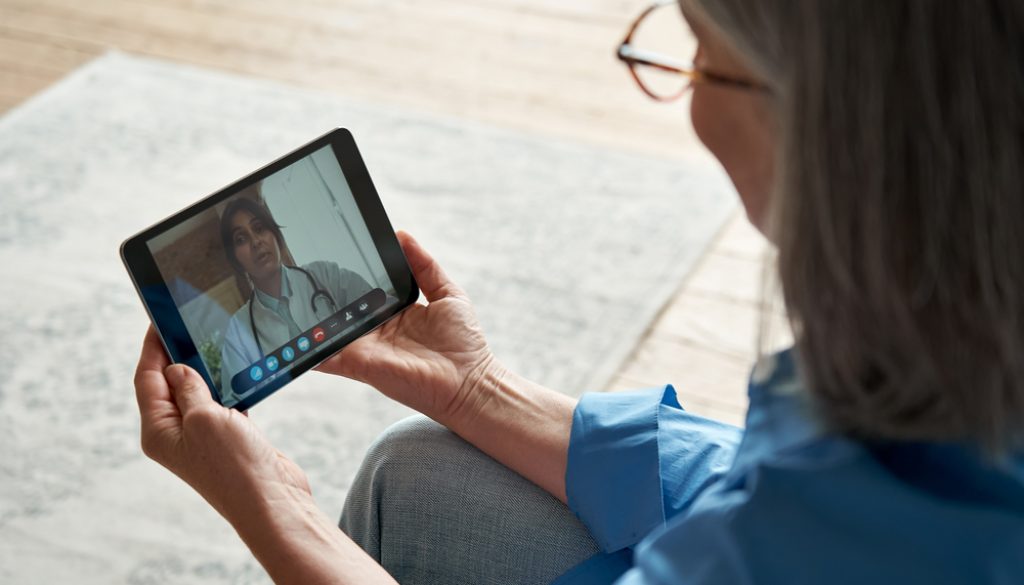Surviving COVID as a Hospitalist: 6 Wellness Tips from the Front Lines
The hospitalist profession has never been more vital than it is right now. As COVID-19 patients overwhelm hospital systems around the country, hospitalists are on the front lines every day providing care, treatment and compassion. In the face of the COVID crisis, health care workers are pushed to the brink of their strength and skills daily.
Nurturing the health and well-being of essential providers is an important component of delivering the best patient care. At Advanced Care Hospitalists (ACH), we’ve compiled six wellness tips to help our hospitalists cope with the overwhelming challenges they’re facing right now.
1. Stay Connected with Family, Friends and Colleagues
You may be working long shifts in the hospital, day in and day out. You may also be feeling isolated and distrusted outside the hospital from people who are afraid of contracting the virus from you. Some hospitalists may be self-isolating from family members to reduce the risk of their loved ones getting sick.
Even if you’re physically distancing from others, stay connected to family, friends and loved ones through phone calls, texts, video chats, or even emails. Social isolation is linked to depression, anxiety, poor mental health, increased stress, poor sleep, less productivity, a weakened immune system, and a host of other health issues.
If you don’t feel comfortable talking to friends and family about your work right now, find ways to connect to colleagues. Discussing shared experiences over a video chat can help you and your colleagues feel less anxious and stronger as a team.
2. Stay Informed as New Information Comes In
COVID-19 is a new medical phenomenon in the U.S. and across the world. Because we’re studying and learning about the virus as we go, new information is pouring in at a rapid rate. We’re also seeing a lot of misinformation and untested therapies surrounding COVID floating around, especially on social media. As a health care provider, it’s your duty to stay informed on emerging data so you can better serve your patients.
Although we’re still lacking the necessary evidence and data on the risks and benefits of potential treatments, having the most current information will help reduce your anxiety and uncertainty while you’re providing patient care. Act confidently in the knowledge that you’re delivering the best care possible based on the information available.
3. Take Self-Care Breaks
While it’s important to stay informed, it’s equally important to disconnect and take time for yourself. During this hectic period, when you may be juggling a stressful job and caring for your family simultaneously, self-care is difficult to prioritize. But every little bit can help, whether that’s taking 5 minutes in the middle of the day to practice mindful breathing exercises or putting down yet another COVID-19 article and playing with your dog instead.
Prioritize family and self-care with the same discipline that you prioritize work. Spending phone-free time with your family, exercising, practicing yoga, meditating, reading a book or listening to music can help you reduce stress and anxiety and leave you in a better mindset to tackle the challenging nature of your job.
4. Practice Empathy
Lead with compassion, empathy and kindness wherever and whenever you can. Your patients and their families are frightened and exhausted. Your colleagues are frightened and exhausted, too. Everyone you interact with is struggling in their own way during this time. A kind word, a reassurance, or a positive reinforcement can go a long way right now. Say thank you as often as you can, especially to the other essential workers like lab techs, housekeepers and cafeteria workers who help keep your hospital operating.
And remember to extend empathy and compassion to yourself as well. Forgive yourself for mistakes, speak kindly to yourself and recognize the validity of your own feelings instead of comparing your experience to someone else who may be “worse off” than you.
5. Accept the Limits of Your Control
Recognize that there are limits to what you can control right now. Unfortunately, you can’t prevent people from catching the virus and dying from it. You also can’t control the speed at which a vaccine is created or the discovery of a new treatment or therapy that could help your patients. All you can do is provide the best care possible to promote a positive outcome.
As a health care provider, you may feel a responsibility to combat misinformation surrounding COVID-19 when you see it on social media or hear about it in person. In these situations, it may be difficult to accept that all you can do is gently educate and inform, but at the end of the day you can’t control other peoples’ decision not to wear a mask in public, or practice social distancing.
If you start feeling overwhelmed by the things you can’t control, it may help to sit down and make a list of times your guidance or care has made a positive impact. Or write down a few good things that happened over the course of the day. A positive mindset (even for just a few minutes) can help combat feelings of anxiety, stress, helplessness, fear and frustration.
6. At the End of the Day, Know That You’re Making a Difference
You may be feeling a lot right now: exhausted and overwhelmed from treating patients over long shifts. Frustrated as cases continue to rise with no signs of slowing. Grieved by all the patients you couldn’t save. Through it all, know that you’re making a positive difference during this pandemic. Find strength in the fact that you have a purpose, and that purpose is to help people get through one of the most challenging times our world has ever faced. Tapping into your inner well of resilience can help you feel energized and focused as you navigate the next few months.
Contact Advanced Care Hospitalists to Learn More
ACH is a Lakeland-based hospitalist group providing comprehensive patient care in community hospitals across Central Florida. If you are interested in learning more about our programs, services, providers or becoming a partner facility, please call us at 863-816-5884 or fill out a contact form online.




